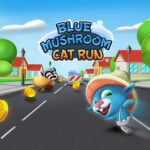The Psychological Benefits of Online Gaming
Online gaming has grown from a niche hobby into a global phenomenon over the past few decades. Today, millions of people around the world log in daily to explore virtual worlds, engage in strategic battles, or simply unwind with friends. While gaming often gets a bad rap due to concerns about screen time, addiction, and social isolation, there are many psychological benefits associated with online gaming that are often overlooked. Let’s explore how online gaming can positively impact mental health and cognitive development.
Stress Relief and Relaxation
One of the most immediate benefits of online gaming is stress relief. Many people turn to games as a way to relax and unwind after a long day. Engaging in a fun, immersive experience can provide a temporary escape from real-world pressures and allow players to decompress. The act of playing games can trigger the release of endorphins, the body’s natural feel-good chemicals, which help reduce stress and promote a sense of well-being.
Moreover, games that are specifically designed to be relaxing, such as those with calming visuals or meditative gameplay, can help players achieve a state of flow. This is a mental state where individuals are fully absorbed in an activity, losing track of time and experiencing a sense of peace and satisfaction. For many, this can be a powerful tool for managing anxiety and improving overall mood.
Cognitive Skill Development
Contrary to the stereotype that gaming dulls the mind, many online games actually help enhance cognitive abilities. For example, strategy games often require players to plan, prioritize, and make quick decisions, all of which can improve problem-solving skills and cognitive flexibility. Puzzle games challenge players to think critically and develop creative solutions, which can enhance spatial reasoning and logical thinking.
Even fast-paced action games, which might appear purely recreational, have been shown to improve hand-eye coordination, reaction times, and attention to detail. These cognitive benefits are not just limited to young players; studies have found that older adults who engage in regular gaming sessions can improve their memory, mental agility, and overall cognitive function.
Social Interaction and Community Building
In a world where more people are feeling isolated, online gaming can serve as a valuable social outlet. Multiplayer games, in particular, foster a sense of community and camaraderie among players. Through guilds, clans, and teams, players often form strong bonds and friendships that extend beyond the virtual world. These interactions can be especially beneficial for those who might find it difficult to connect with others in real-life settings due to social anxiety or geographic limitations.
The collaborative nature of many online games encourages teamwork and communication, which can help players develop social skills. By working together to achieve common goals, players learn the importance of cooperation, leadership, and empathy. These experiences can translate into real-world skills that are useful in both personal and professional contexts.
Emotional Resilience and Coping Mechanisms
Online games can also help players build emotional resilience. The challenges and setbacks encountered in gaming, such as losing a match or failing a mission, provide opportunities for players to practice perseverance and learn how to cope with failure. By facing these virtual adversities in a controlled environment, players can develop a growth mindset, learning to view mistakes as opportunities for improvement rather than insurmountable obstacles.
Additionally, many narrative-driven games offer players the chance to explore complex emotional themes and moral dilemmas. Engaging with these stories can promote empathy and emotional intelligence, allowing players to better understand and manage their own emotions and those of others. For some, this can be a therapeutic experience, helping them process their feelings and gain new perspectives on their own lives.
The Future of Online Gaming and Mental Health
As technology continues to evolve, the potential for online gaming to positively impact mental health and cognitive development is only expected to grow. Virtual reality (VR) and augmented reality (AR) are opening up new possibilities for immersive therapeutic experiences, while the increasing sophistication of artificial intelligence (AI) could lead to more personalized and adaptive gaming experiences tailored to individual players’ needs.
Moreover, the growing awareness of the benefits of online gaming is leading to a shift in how games are designed and perceived. Game developers are increasingly mindful of the psychological impact of their games, creating experiences that are not only entertaining but also supportive of mental health and well-being.
In conclusion, while online gaming is not without its challenges, its potential benefits should not be underestimated. From stress relief and cognitive enhancement to social interaction and emotional resilience, online games offer a wealth of psychological advantages that can enrich players’ lives. As we continue to explore the intersection of gaming and mental health, it is clear that online games have the power to be much more than just a pastime—they can be a positive force for personal growth and well-being.























